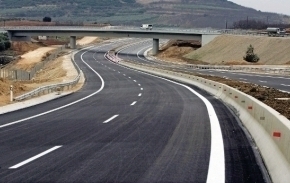
In early 2011 Egnatia Highway, the pride of northern Greece, owed 255 million Euros in direct loans and 500 million Euros in securities.
The strange thing is that the mandate of Mouratidis, chosen by former Infrastructure Minister Dimitris Repas, was last renewed by Minister Yiannis Rangousis, shortly before he left the Ministry of Infrastructure. The decision to extend the mandate of the Governing Board of the Egnatia Highway was taken when PASOK President George Papandreou was negotiating for a government of agreement with the other parties.
It seems that the resigning president and CEO of Egnatia Highway could not rise up to the obligations arising from the management of a company mired in debt, which is what Egnatia Highway is.
Egnatia Highway, 670 km long, is worth nearly 5.55 billion Euros (excluding VAT) of which 55.32 percent were provided by the Greek State (3.07 billion Euros) and 44.68 percent by the European Union (2.48 billion Euros).
In order to finance the construction of the highway the Greek state took loan(s) with local banks. Some of the loans were concluded with a pledge of future toll revenues, and anticipated revenues from VAT.
Due to the tragic financial situation of the company toll revenues passed into the hands of banks. The situation began to stabilize with the opening of new toll stations, but they had to have been operating for at least three years, something which never happened. This is obvious by the fact that only four new toll stations were opened in two months (November-December 2011).
For the first two years, revenues are estimated at 70-80 million Euros annually and 120 million Euros per year, when the new toll stations start working at full speed (2015).
It is clear that the revenue losses from the non-functioning toll stations are enormous, given that the turnover of Egnatia in 2010 was 5 million Euros. What can a company do with annual turnover of 5 million Euros, when only the maintenance of pavements requires about 70 million Euros per year?
Egnatia Highway is included in the privatization program of the Ministry of Finance. In 2012 the state will give the functioning of the highway, its maintenance and toll stations to private companies with a concession contract.

No comments:
Post a Comment